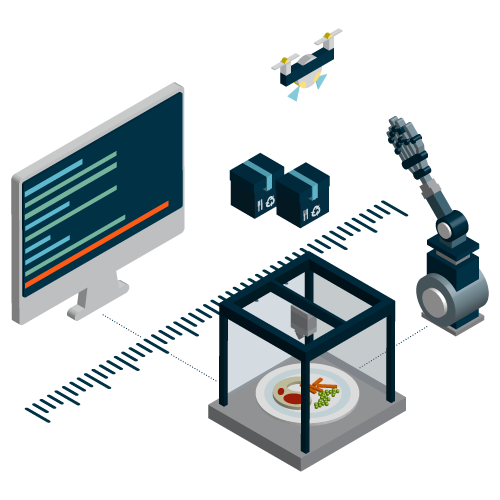Preparing for the future of food

What is the future of food?
Climate change and population growth are predicted to change the way we eat. To ensure we have a sustainable food supply, new food products are being developed using innovative technologies and processes. These products are known as ‘future’ foods and include alternative proteins made from plants, cultivated from animal cells, or produced via fermentation and food produced using gene-editing technology.
Many new alternative protein products are on the cusp of being commercialised and sold on the market. However, there are a number of challenges a business must consider before launching new food products.
It’s an exciting and fast moving area and, as expected, it comes with many legal considerations. At Osborne Clarke we have an international panel of experts who can help you get your product to market and navigate the legal and regulatory landscape to ensure your business is set up to succeed.
- What you need to know now
These alternative proteins, particularly cultivated meat and precision fermentation, involve high-tech innovation or novel process.
Whilst these innovative technologies have been in development for some time, the recent advances in various biotechnologies, accompanied by steps towards deregulation have helped to progress them to the stage where mass-market commercialisation may be possible.
Novel foods
In the UK, newly developed foods (often produced using new technologies or processes) as well as food which is or has been traditionally eaten outside of the UK/EU before 15 May 1997, are known as "novel foods". To place a novel food product on the market in the UK or EU, it must be approved by the UK Food Standards Agency (FSA) or the European Food Safety Authority (EFSA).
Gene editing legislation
With respect to gene editing, in 2023 the UK enacted new legislation in the form of the Genetic Technology (Precision Breeding) Act 2023 to pursue a post-Brexit deregulatory agenda with respect to "precision breeding". New genomic techniques (NGTs) encompassed by precision breeding can produce targeted genetic changes that could have occurred through traditional breeding and natural processes. This differs from previous techniques as it does not involve the insertion of DNA from separate species and is therefore generally considered safer than genetically modified organisms.
Consultation on ways to implement the deregulation of gene edited food products resulting from this legislation is currently under way in the UK. In the EU, consultation is also ongoing in relation to the European Commission's proposal for a less stringent approach to the regulation of plants produced by new genomic techniques (NGTs), which includes products, food and feed containing or consisting of NGT plants.
- How we can help you
We can advise on the key legal issues throughout the lifecycle of future foods and best practice when labelling and advertising products, including:
- advising on novel food authorisation and approvals needed and how to obtain them including novel food and gene editing approval
- advising on the regulatory framework surrounding gene-editing food products
- helping with identifying new or additional food safety hazards
- providing guidance on food safety information, product labelling and marketing.
- reviewing existing products to ensure labelling meets legal standards
- helping with the protection and enforcement of IP rights including trade secrets protection, navigating complex patent landscape, freedom to operate analysis and associated IP licensing, reducing the risk of patent and other IP infringement claims by third parties, advising on wider strategic IP issues, such as how to structure ownership and brand protection
- assisting with venture capital financing of businesses, helping companies grow their operations to a stage where they can commercialise their activities on a scalable basis, navigate the investment process to help negotiate the best possible terms for investment, advising on sales, acquisitions and IPOs together with general corporate governance
- advising on strategies for attracting and retaining talent, share option schemes, reviewing contractual protections
- advising on advertising for alternative proteins, contracting with suppliers, retailers and research organisations including universities
Our international legal roadmap provides an overview of existing and upcoming regulations in key European jurisdictions, and outlines key takeaways for your business.
Connect with one of our future foods experts

Find out how our specialists can support your business
Our latest Future Food Insights








































